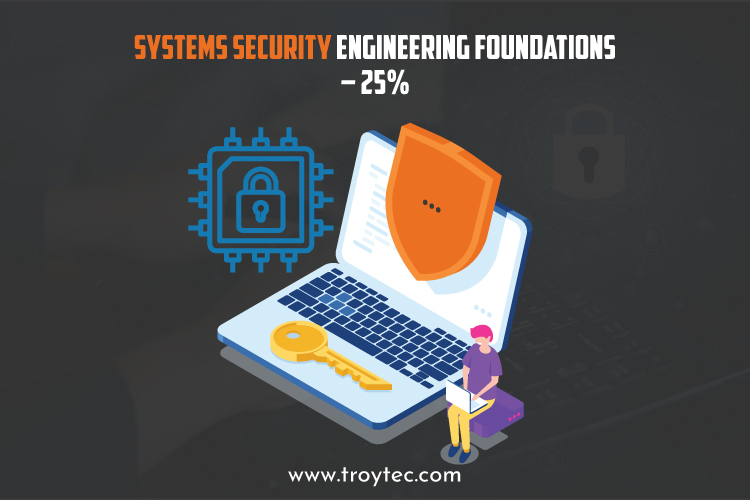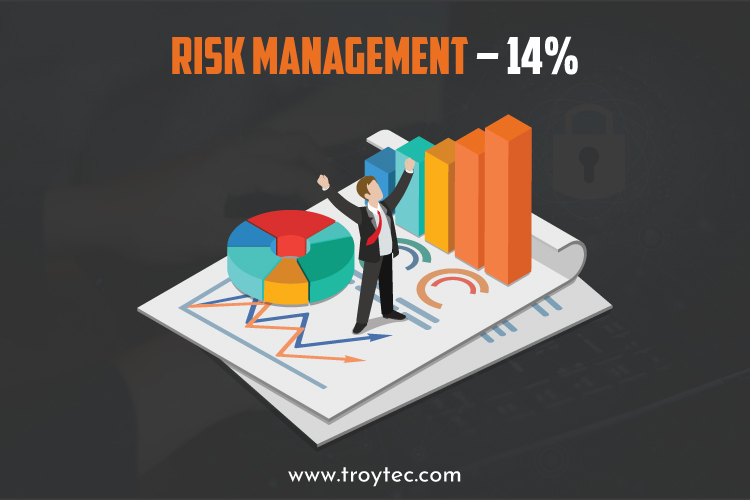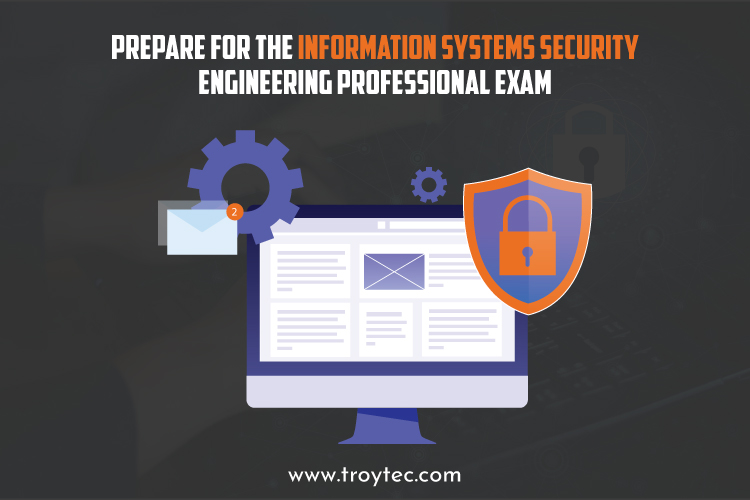As we all know, there are several IT certifications out there. Nearly every day, thousands of positions are available for the one individual capable of executing the work flawlessly. The ISC2 Information Systems Security Engineering Professional Exam, developed in partnership with the US National Security Agency (NSA), is designed for system security engineers.
ISSEPs apply systems engineering principles and processes to create safe networks, analyze organizational needs, define safety standards, design security architectures, create secure concepts, implement system safety, and assist with system integrity assessment and endorsement in government and manufacturing.
Candidates must meet the experience criterion. Candidates must pass a written test. As an Information Systems Security Engineering Professional, you will analyze company demands, define safety standards, design secure architectures, execute system security, and support evaluation and certification for government and industry.
Continue exploring and reading this fantastic blog to learn how to prepare well for the CAP Information Systems Security Engineering Certification in 2024.
What is the Information Systems Security Engineering Exam?
The Information Systems Security Engineering Professional Exam is one of three CISSP specialization certification tests. It was created in partnership with the United States National Security Agency – NSA to honor people who specialize in applying system engineering ideas and techniques to secure systems.
The Information Systems Security Engineering Professional Exam analyzes six domains: security engineering concepts, defense architecture research and development, security management, safety operations, and software safety. The ISSEP CBK thoroughly reviews the fundamental ideas and techniques used in information security engineering.
Information Systems Security Engineering Professional Exam Domains
Here are the exam domains for the CISSP-ISSEP exam you must know in 2024:
1. Systems Security Engineering Foundations – 25%

• Apply the foundations of systems security engineering.
Understand the security of systems engineering trust principles and hierarchies.
Identify the link between technologies and security engineering processes.
Utilize structural security design concepts.
• Implement systems security engineering methods.
Identify the organizational security authority.
Identify the system security policy elements.
Incorporate design ideas, such as open, proprietary, and modular.
• Integrate with the appropriate system development process.
Integrate security duties and activities.
Validate security standards throughout the procedure.
Incorporate software assurance methodologies.
• Perform technical management.
Implement project planning methods.
Perform project evaluation and control processes.
Conduct decision process management.
Implement risk management processes.
Implement handling configuration methods.
Implement information management processes.
Conduct measurement procedures.
Conduct quality assurance (QA) processes.
Explore possibilities to automate security processes.
• Engage in the purchase process.
Prepare security needs for purchase.
Participate in the selection process.
Engage in supply chain risk management – SCRM.
Participate in the preparation and evaluation of contractual documents.
• Design Trusted Systems and Networking TSN.
2. Risk Management – 14%

• Follow security risk management concepts.
Integrate security risk administration with Enterprise Risk Management – ERM.
Integrating risk management across the lifecycle
• Address system risks.
Establish the risk context.
Identify the system security threats.
Employ risk analysis.
Execute risk evaluation.
Promote risk treatment choices.
Document the risk findings and choices.
• Manage operational risks.
Determine stakeholders’ risk tolerance.
Identify remedial requirements and other system adjustments.
Determine the risk treatment options.
Evaluate recommended risk-treatment alternatives.
Recommend risk treatment choices.
3. Safety Planning and Design – 30%
• Evaluate the organizational and operational context.
Identify stakeholder requirements.
Identify the applicable limitations and assumptions.
Assess and document dangers.
Determine the system protection needs.
Create Security Test Plans (STPs).
• Follow system security principles.
Incorporate resilient measures to confront risks.
Employ defense-in-depth ideas.
Identify failsafe settings.
Minimize single points of failure (SPOF).
Integrate the least privilege idea.
Learn the economy of mechanism.
Understanding the idea of separation of duties (SoD)
• Develop system requirements.
Create system security context.
Identify works in the system and security.
Concept of Operation (CONOPS).
Establish a baseline of system security needs.
Analyze the system security needs.
• Develop the system protection architecture and design.
Develop functional evaluation and allocation.
Maintain consistency between the defined design and the system needs.
Develop secure system design components.
Perform trade-off studies.
Evaluate the efficiency of protective measures.
4. Execution, Verification, and Validation – 14%
• Set up, integrate, and deploy security systems.
Execute system security design and integration.
Perform security-related deployment operations.
• Verify and validate security solutions.
Conduct system security checks.
Perform verification of security to show security.
Controls satisfy stakeholder security needs.
5. Secure Operations, and Change Leadership, and Disposal – 17%
• Develop a secure operations strategy.
Specify the criteria for persons doing activities.
Contribute to constant contact with stakeholders for security-related components of the system.
• Engage in secure operations.
Develop ongoing surveillance solutions and methods.
Support the event Response (IR) process.
Develop a secure servicing strategy.
• Engage in change management.
Participate in the change reviews.
Determine the change’s impact.
Perform validation and verification of modifications.
Update the risk assessment documents.
• Participate in the disposal procedure.
Identify the disposal security needs.
Develop an efficient disposal strategy.
Develop deactivation and disposal methods.
Audit outcomes of the deactivation and disposal procedure.
Information Systems Security Engineering Professional Exam Details
Here are the details for the Information Systems Security Engineering Professional Exam (ISSEP):
• Exam Name: Information Systems Security Engineering Professional
• Exam Code: CISSP-ISSEP
• Exam Duration: 180 minutes
• Exam Format: MCQs and Multiple Response
• Number of Questions: 125
• Passing Score: 700 out of 1000
• Exam Fee: $599
• Exam Language: English Only
Why Choose Us?
We are a user-driven network. Our followers who have finished the ISC2 Information Systems Security Engineering Professional test help to keep the practice test up to date with recent questions. Our premium question bank is continuously updated with feedback from recently qualified candidates, community members, and ISC2 Security Engineering specialists to help you pass your Information Systems Security Engineering certification exam on the first try.
Updated ISC2 CISSP-ISSEP Certification Questions
Our trained members of the community and ISC2 Security Engineering professionals routinely contribute, allowing us to deliver the most recent and appropriate practice test questions. This tried-and-true approach provides us the confidence to provide 100% satisfaction and a full refund.
Online Information Systems Security Engineering Certification Practice Test.
Our online simulated practice test intends to educate candidates on the abilities required to pass the Information Systems Security Engineering Professional Exam while encouraging them to think outside the box and see the broader picture. Compared to sample queries, PDFs, and test dumps, this technique of studying has shown to be highly dependable and effective.
Comprehensive ISC2 ISSEP Test Results and History
Your Information Systems Security Engineering Professional Exam scores are significant since your success is crucial! You may utilize exam results to identify unproductive areas, and focusing on them will help you achieve your Information Systems Security Engineering Professional Exam certification objective faster. The outcome history allows you to follow your progress as you go.
How to Prepare for the Information Systems Security Engineering Professional Exam?

Remember to be clear about your choices from the outset, such as whether you want to pursue the certification, what type of schedule you would like to create for your work-life balance, what assets would work best, and so on. All of these are effective strategies to improve your path of learning and studying for what you want to attain. Let’s get started on your Information Systems Security Engineering Professional Exam preparation.
1. Official website.
The official website offers several little but vital materials that are incredibly valuable for all applicants; the basics are as follows:
Updated Information Systems Security Engineering Professional Exam outline – There are revisions to the exam outline.
The Information Systems Security Engineering Professional Exam curriculum has been updated, and the new exam outline will be utilized starting November 13th, 2020. So, it’s critical to confirm that and download the PDF. If you want to take the test before, an older version of the Information Systems Security Engineering Professional Exam outline is also available on the website.
2. Self-paced course.
The (ISC)² offers a structured course for their aspiring students. The learning management system provides immediate access to the Official (ISC)² ISSEP syllabus for 180 days. This course offers 40 hours of video lessons covering all six test domains.
It also includes interactive flashcards, domain tests, post-assessment examinations, and the flexibility to learn independently. Also, this course consists of a bonus! The CISSP Self-Paced Refresher is supplied to candidates at no extra charge and contains study resources for your cruise. This is an entirely distinct course that is available for free. The official self-paced training price is $2,495.
3. Flashcards.
The Official Information Systems Security Engineering Professional Exam Flash Cards are one of the most effective preparation strategies. Flashcards are one of the most enjoyable and exciting methods to study for any exam, anytime and anywhere. They are compact, pleasing to the sight, and easy to transport and revise, making them the ideal partner.
Includes official ISSEP flash cards! When you’re tired of viewing modules and reading books, this will quickly motivate you to study.
4. (ISC) Online Community
Online communities may assist candidates in engaging with others with the same degree of expertise as them or are near to it because they are packed with students, aspirants, and experienced applicants who join together to help and aid each other. Candidates may come across folks who might provide valuable tips and tactics to help them relax or prepare for the test.
5. Examine with Practice Tests
Training can never go wrong unless you’ve never been ready for anything. Although the official website does not supply candidates with sample exams or mock examinations, pupils can practice their tests on the Pearson VUE website to illustrate to candidates how it would be on exam day. This will add salt to applicants’ months of preparation.
Conclusion
An Information Systems Security Engineering Professional collaborates with information security professionals to assess an organization’s networks and computer systems, identifying and resolving possible concerns such as fraud, cyber-attacks, leaking data, and other safety hazards. Your security engineering responsibilities include regular maintenance and upgrades to safety mechanisms and programs, troubleshooting concerns from information security professionals, and finding solutions to improve existing systems. You carry out your tasks in an organization’s information technology section, but you can also speak to other divisions to inform management about the organization’s security situation.
FAQs (Frequently Asked Questions)
How long will I have to wait to arrange my exam?
Applicants can schedule their exams at any time, but they must plan at least 24 hours in advance of the time and day they will be present.
How can I postpone my exam?
Applicants can reschedule their exams by visiting the ‘upcoming appointment’ area.
What number of questions will be asked?
The CISSP-ISSEP exam will have a total of 150 questions. Note: If your test is scheduled for November 13th, 2020, the number of questions will be 125.

